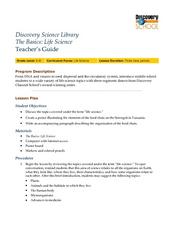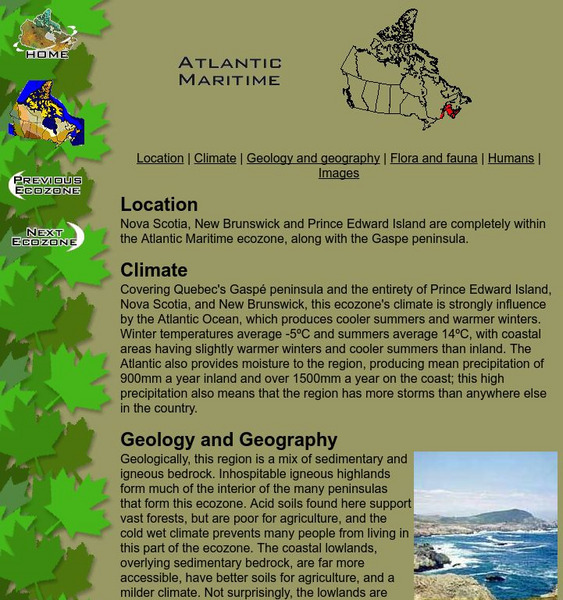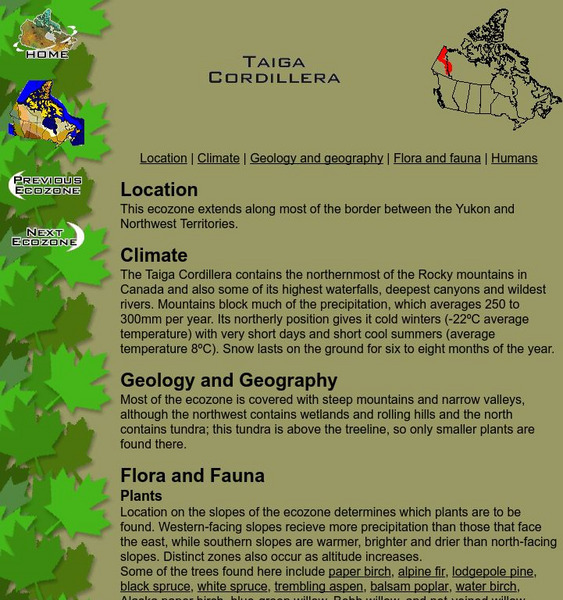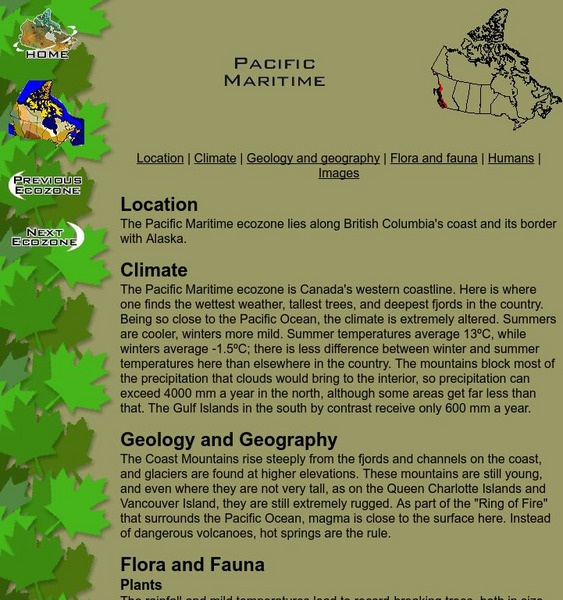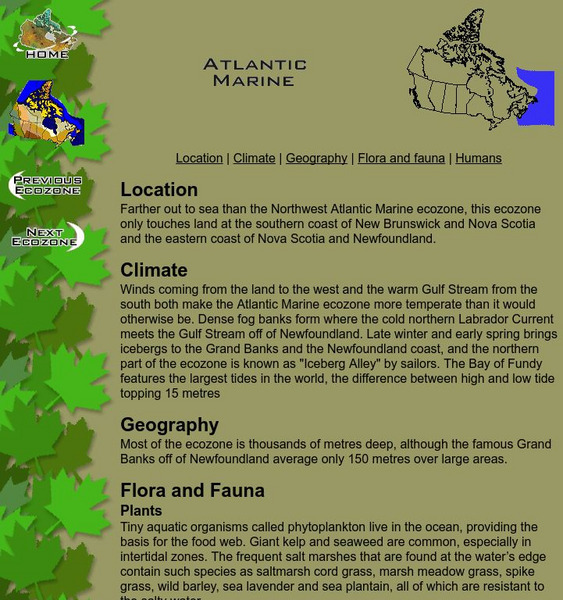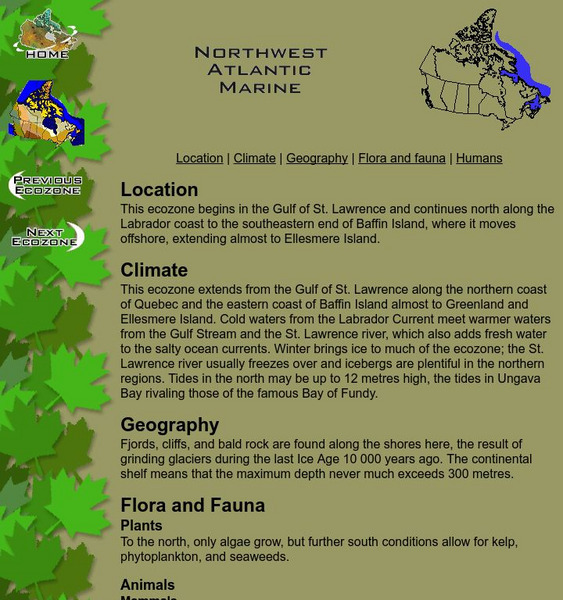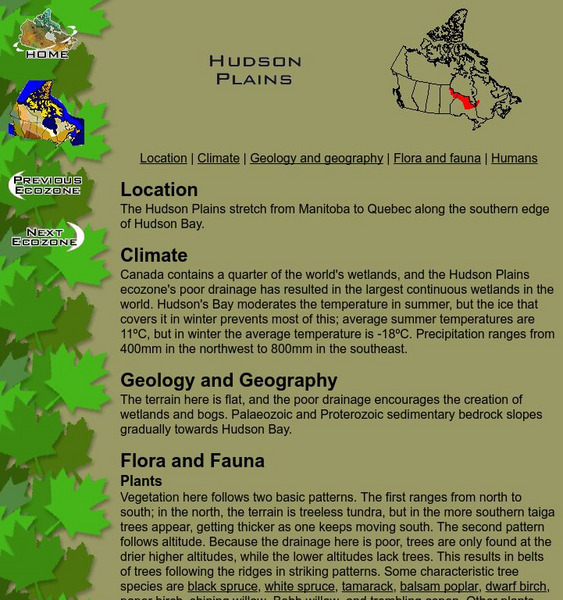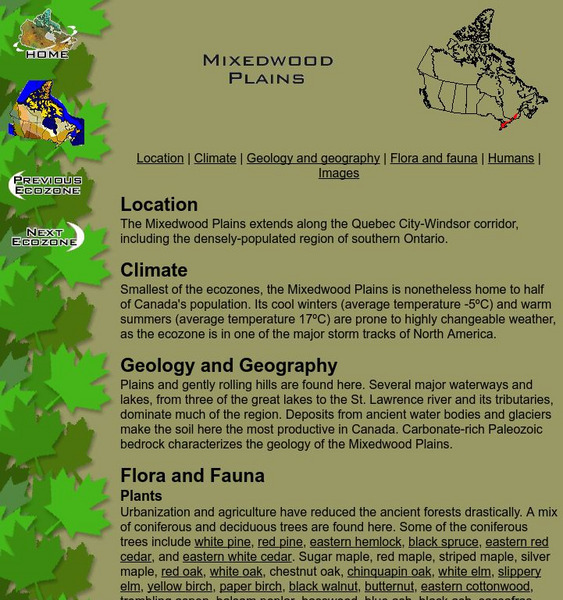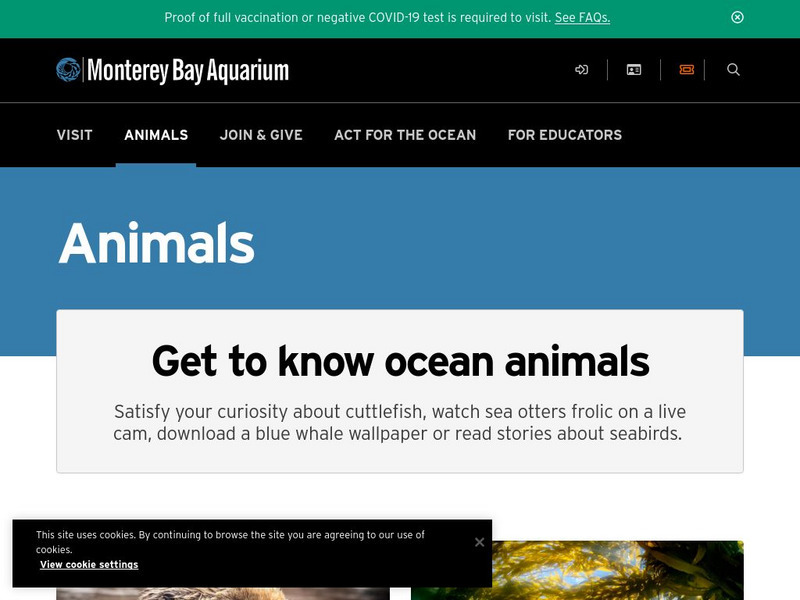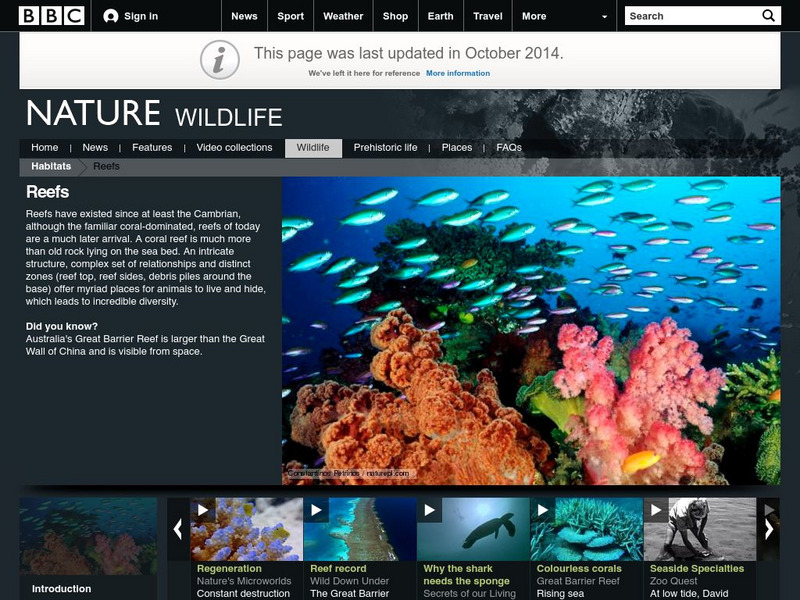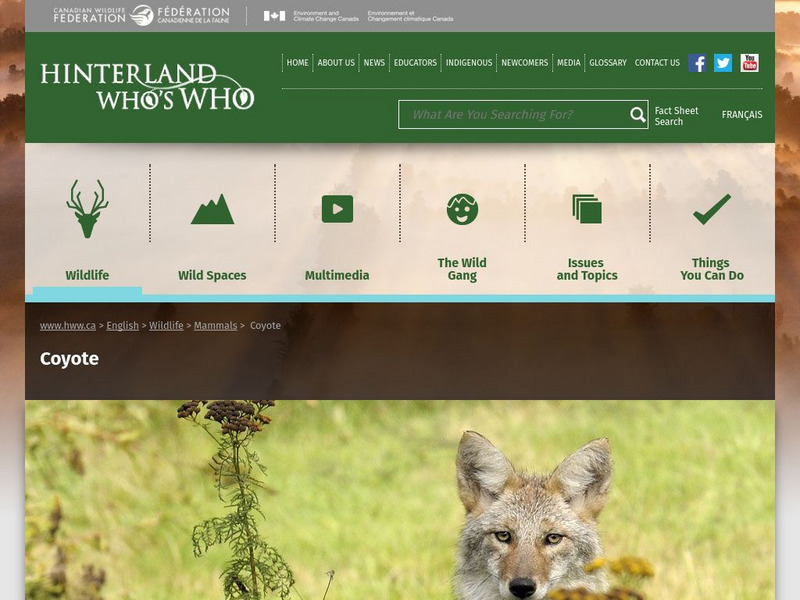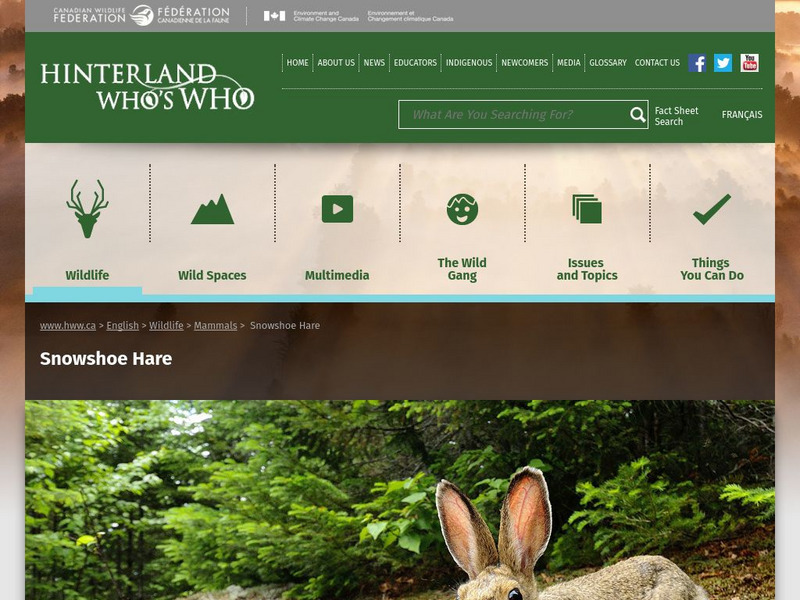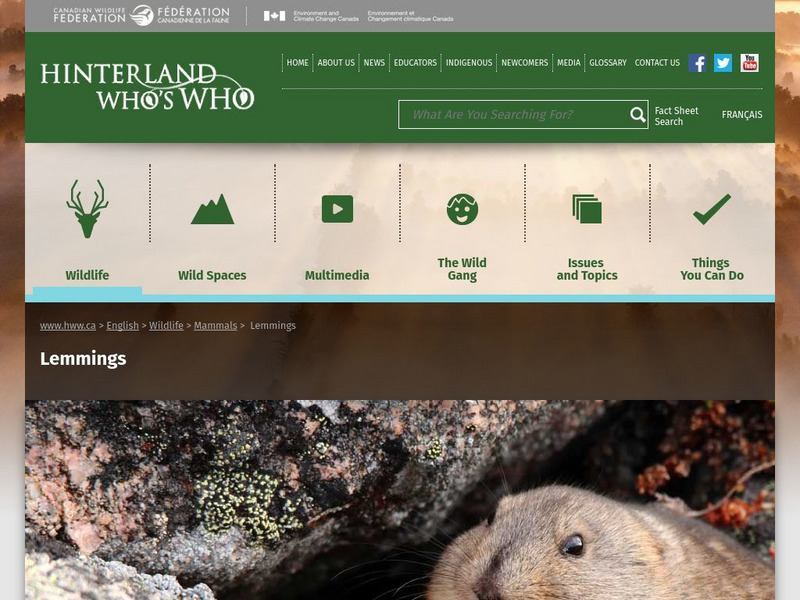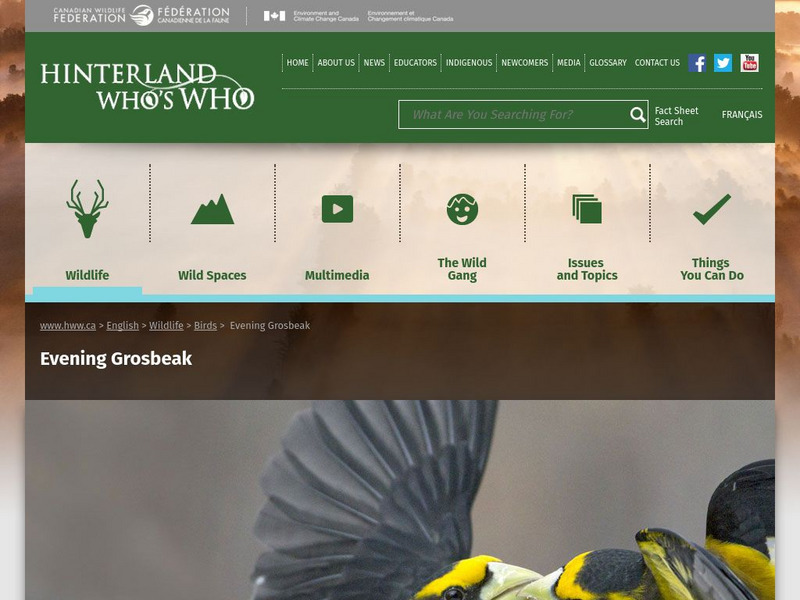Curated OER
Where Are the Dinosaurs?
Students explore what the dinosaurs were like. In this dinosaur lesson, the teacher peaks student curiosity about dinosaurs. This lesson would be a great starting point for a dinosaur unit since it primarily engages student interest and...
Curated OER
The Basics:Life Science
Middle schoolers explore concepts in life science using segments drawn from Discovery Channel. In this life science lesson, students participate in discussions about the food chain. Middle schoolers create a poster to illustrate a...
PBS
Pbs Kids: Plum Landing: Map Animal Habitats
In this Plum Landing activity, students will write or draw descriptions of where animals live in their neighborhoods. Students can publish their descriptions online.
BBC
Bbc Nature: Wildlife: Rivers and Streams
Take a close-up look at the world of rivers and streams and discover what lives there and where you can find them through pictures, news, descriptions, and external links.
McGill University
Mc Gill University: Canadian Biodiversity: Ecozones: Atlantic Maritime
This Atlantic Maritime ecozone includes Nova Scotia, New Brunswick, and Prince Edward Island. This brief, concise description includes a collection of images of the animals and birds native to the location. Many of the images include...
McGill University
Mc Gill University: Canadian Biodiversity: Ecozones: Taiga Cordillera
The Taiga Cordillera extends along the border of the Yukon and Northwest Territories. This is a brief, concise description of the location, climate, geology and flora and fauna. It includes a collection of images of the landscape as well...
McGill University
Mc Gill University: Canadian Biodiversity: Ecozones: Boreal Cordillera
This Boreal Cordillera contains the mountains of the southern Yukon and northern British Columbia . This brief, concise description includes a collection of images of the animals and birds native to the location. Many of the images...
McGill University
Mc Gill University: Canadian Biodiversity: Ecozones: Pacific Maritime
The Pacific Maritime ecozone lies along the British Columbia coast and it's border with Alaska. This is a brief, concise description of the location, climate, geology and flora and fauna. It includes a collection of images of the...
McGill University
Mc Gill University: Canadian Biodiversity: Ecozones: Montane Cordillera
The Montane Cordillera covers most of southern British Columbia and some of southwestern Alberta. This is a brief, concise description of the location, climate, geology and flora and fauna. It includes an excellent collection of images...
McGill University
Mc Gill University: Canadian Biodiversity: Ecozones: Atlantic Marine
The Atlantic Marine ecozone is located father out to sea and touches land at the southern coast of New Brunswick and Nova Scotia and the eastern coast of Nova Scotia and Newfoundland. This brief, concise description includes a collection...
McGill University
Mc Gill University: Canadian Biodiversity: Ecozones: Northwest Atlantic Marine
The Northwest Atlantic Marine ecozone begins in the Gulf of St. Lawrence and extends to the southeastern end of Baffin Island. This is a brief, concise description of the location, climate, geology, and flora and fauna. It includes some...
McGill University
Mc Gill University: Canadian Biodiversity: Ecozones: Hudson Plains
The Hudson Plains ecozone stretches from Manitoba to Quebec along the southern edge of the Hudson Bay. This is a brief, concise, description of the location, climate, geology and flora and fauna. It includes a collection of images of the...
McGill University
Mc Gill University: Canadian Biodiversity: Ecozones: Mixedwood Plains
This Mixedwood Plains ecozone extends along the Quebec City- Windsor corridor and the densely-populated region of Southern Ontario. This brief, concise description includes a collection of images of the animals and birds native to the...
Monterey Bay Aquarium
Monterey Bay Aquarium: Animal Guide
An extensive image-rich field guide to marine habitats and inhabitants, with detailed descriptions and "cool facts" about each.
BBC
Bbc Nature: Wildlife: Reefs
Learn all about the world of reefs by discovering what lives there and where you can find them through pictures, sounds, news, descriptions, and external links.
BBC
Bbc Nature: Wildlife: Estuaries
Take a close-up look at the world of estuaries and discover what lives and grows there through videos, pictures, news, descriptions, and external links.
BBC
Bbc Nature: Wildlife: Rockpools
Learn all about the world of rockpools and discover what lives there and where you can find them through sounds, pictures, descriptions, and external links.
BBC
Bbc Nature: Wildlife: Wetlands
Take a close-up look at the world of wetlands and discover what lives and grows there through videos, pictures, news, descriptions, and external links. Listen to the various sounds that occur in wetlands.
Canadian Wildlife Federation
Hinterland Who's Who: Coyote
Get the facts about coyotes. Besides finding a detailed description of the coyote, you'll also learn about some of its unique facts and characteristics. Also included in this Mammal Fact Sheet on coyotes is information on their habitat...
Canadian Wildlife Federation
Hinterland Who's Who: Red Breasted Nuthatch
Get the facts about the Red-breasted Nuthatch. Besides finding a detailed physical description of this forest-found bird, you?ll also learn about some its unique facts and characteristics. Also included in this Bird Fact Sheet on the...
Canadian Wildlife Federation
Hinterland Who's Who: Snowshoe Hare
Get the facts about the snowshoe hare. Besides finding a detailed description of this common forest creature that only lives in North America, you'll also learn about some of its unique facts and characteristics. Also included in this...
Canadian Wildlife Federation
Hinterland Who's Who: Lemmings
Get the facts about lemmings. Besides finding a detailed description of the high Arctic's smallest mammal, you'll also learn about some of its unique facts and characteristics. Also included in this Mammal Fact Sheet on lemmings is...
Canadian Wildlife Federation
Hinterland Who's Who: Evening Grosbeak
Get the facts about the Evening Grosbeak. Besides finding a detailed physical description of this member of the finch family, you?ll also learn about some of this bird?s unique facts and characteristics. Also included in this Bird Fact...
Cornell Lab of Ornithology
Cornell Lab of Ornithology: All About Birds
One of the great attractions of this site is the ability to listen to the birds. Each bird is categorized with a picture, description, its cry, conservation status and "Cool Facts." There are tips for attracting birds as well as...



